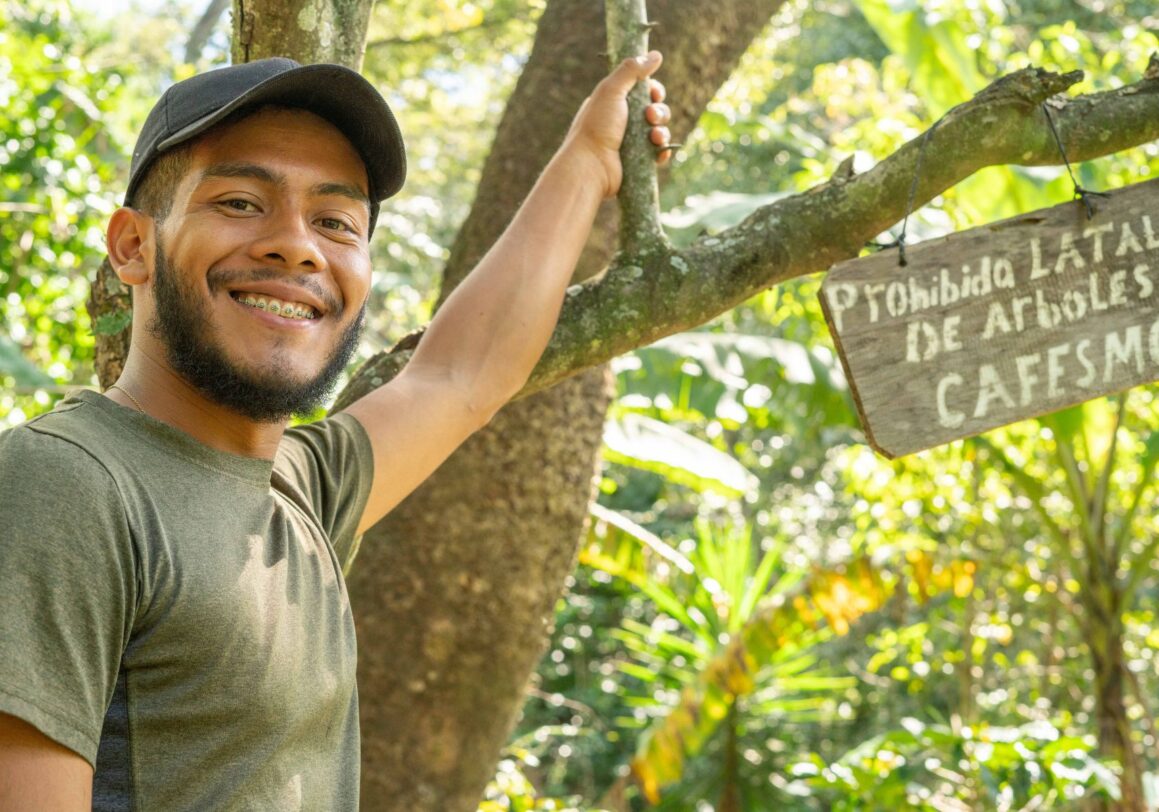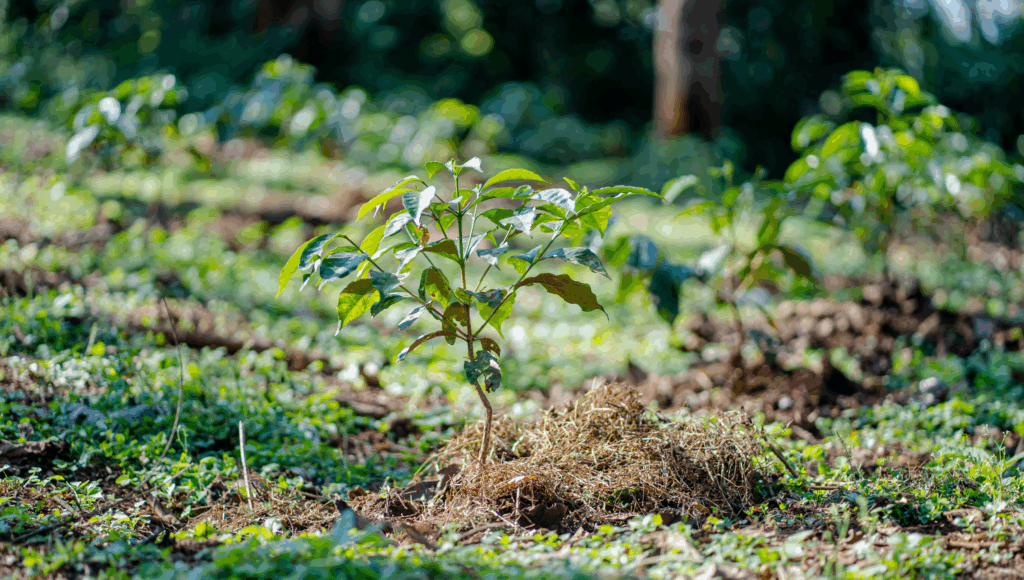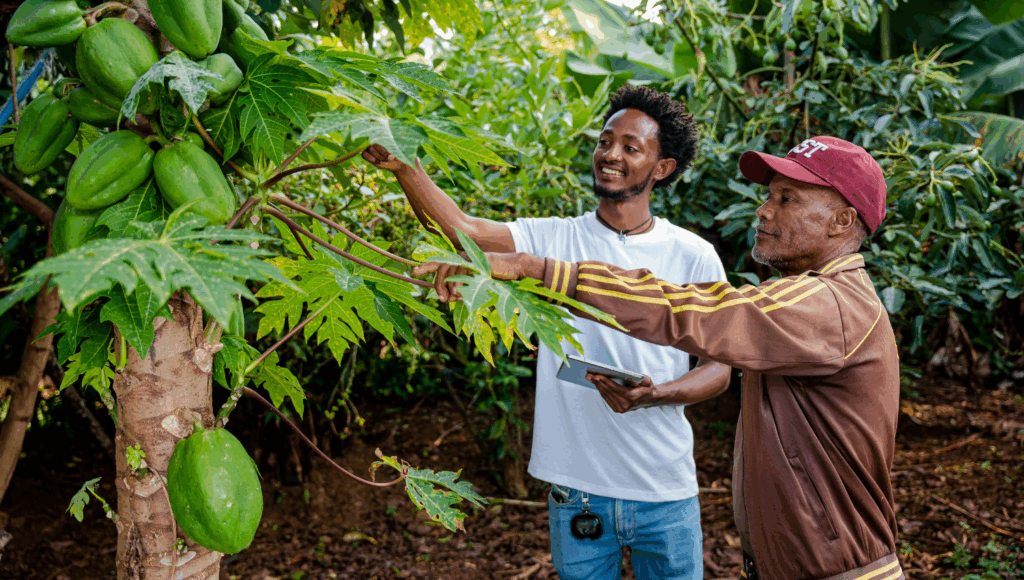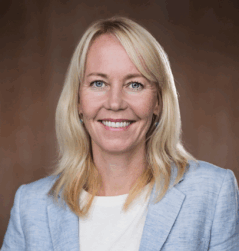From Agroforestry to Climate-Smart Coffee Regions: Our Roadmap for 2024-2028

With the start of 2024, we have transitioned into a new program phase. Within the next five years, we are planning to extend our focus from the farm and community to the landscape level in climate-smart coffee growing, to implement sustainable land-use systems such as agroforestry and regenerative agriculture, and intensify our efforts aiming at carbon reduction and sequestration as well as better food security for smallholder coffee farming households.
EXTENDING THE ACTIVITIES FROM THE FARM AND COMMUNITY TO THE LANDSCAPE LEVEL
In the past years, our measures have been aiming at climate-resilient livelihoods of smallholder coffee farming families, minimizing carbon emissions and enhancing the carbon storage potential in coffee farms. Now we are expanding our focus by integrating more aspects that are highlighted as important by climate impact research. This includes promoting sustainable land use systems such as agroforestry and regenerative agriculture as well as water management. With our approach to climate-smart coffee regions, we extend our activities from the farm and community level to the landscape level to increase the overall climate resilience on a broader scale.

The process of improving climate resilience and livelihoods has to start at the farm level, but beyond that, you have to think in terms of landscape. If it is about reforesting an area or protecting a watercourse, activities can’t be limited to individual farms.
We cooperate with various stakeholders on site to assess the respective landscape and develop joint action plans. In doing so, we keep pursuing a participatory approach that includes smallholder farmers and other local stakeholders in the decision-making processes. This enables us to look at the existing forms of agricultural use and not stop at district or federal state boundaries.
IDENTIFYING THE MOST SUITABLE CARBON REDUCTION AND SEQUESTRATION STRATEGIES
Since coffee as a cash crop plays an important role in sustaining millions of livelihoods around the world, it is critical to understand how and where greenhouse gas emissions are emitted from coffee production and processing. We will conduct carbon footprint analyses at farm and household level in all c&c program regions. We aim to identify the most suitable carbon reduction and sequestration strategies per region. Something that will play a role here is implementing sustainable land use systems. This contributes to carbon reduction and sequestration alongside providing various other benefits such as better food security and income sources.


IMPROVING FOOD SECURITY AS AN ESSENTIAL PREREQUISITE FOR LIVELIHOOD AND CLIMATE RESILIENCE
Also, the topic of food security gains growing relevance in our activities. Food security is a human right that is increasingly put at risk by the impacts of climate change. Particularly in coffee-growing regions, food security is an issue. This is because of an unstable food supply but also often because farmers focus on cash crop production rather than on food production. At the same time, food security is an essential precondition for coffee farming families to successfully produce their cash crop, improve their livelihoods, and enhance their resilience against climate change. We will therefore intensify the promotion of climate-smart practices that improve the families’ food security at the same time. All of these topics are important cornerstones of our roadmap for the next five years.

c&c’s work and impact is made possible through the cooperation of the coffee sector and the support of public institutions. We as committed companies all strive to support coffee families in becoming climate resilient, that is our ultimate goal. Only by working together and using synergies can we make change happen.